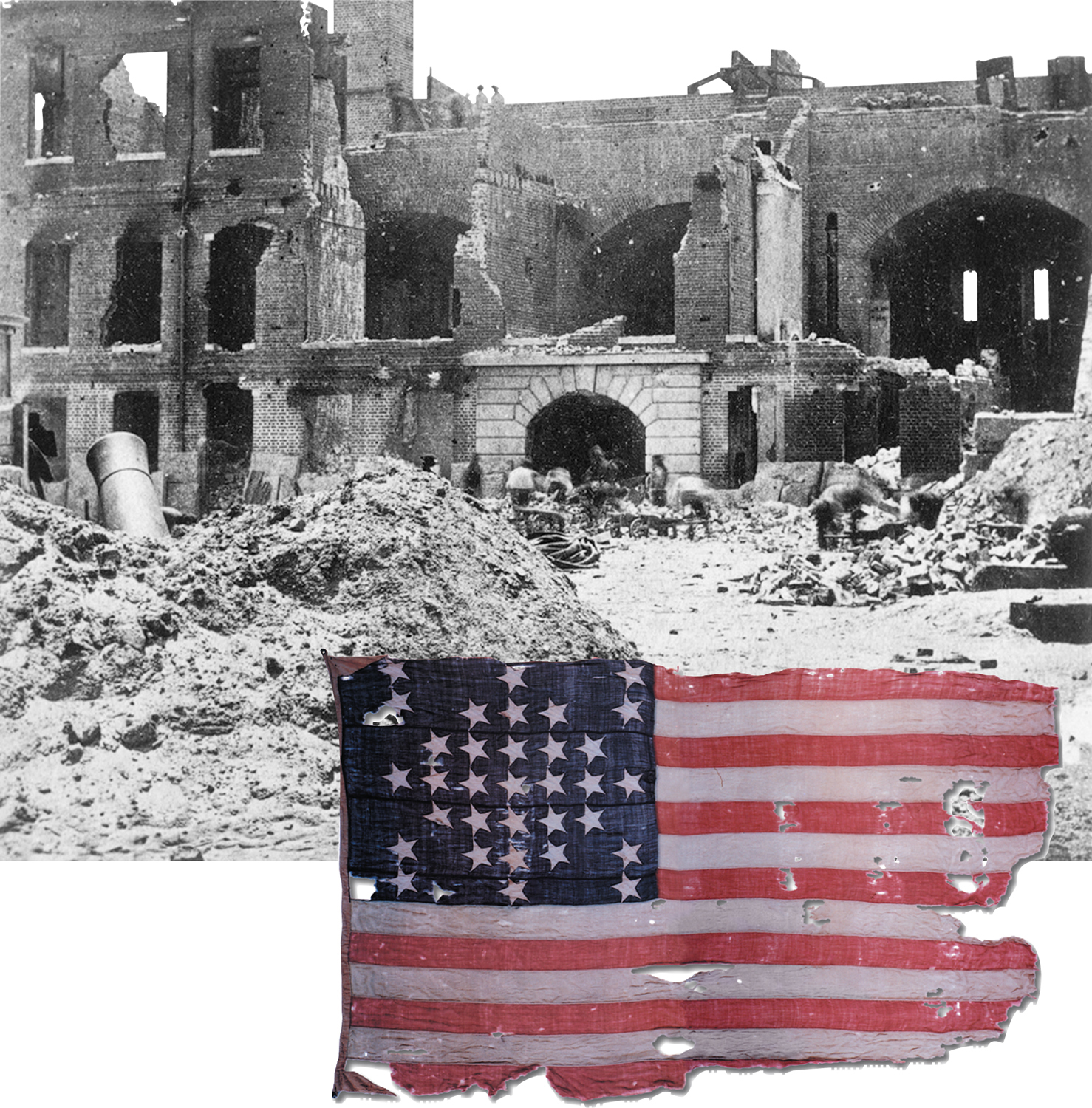Attack on Fort Sumter

Major Robert Anderson and some eighty U.S. soldiers occupied Fort Sumter, which was perched on a tiny island at the entrance to Charleston harbor in South Carolina. The fort with its American flag became a hated symbol of the nation that Southerners had abandoned, and they wanted federal troops out. Sumter was also a symbol to Northerners, a beacon affirming federal authority in the seceded states.
Lincoln decided to hold the fort, but Anderson and his men were running dangerously short of food. In early April 1861, Lincoln authorized a peaceful expedition to bring supplies, but not military reinforcements, to the fort. The president understood that in seeking to relieve the fort he risked war, but his plan honored his inaugural promises to defend federal property and to avoid using military force unless first attacked. Masterfully, Lincoln had shifted the fateful decision of war or peace to Jefferson Davis.
On April 9, Davis and his cabinet met to consider the situation in Charleston harbor. Davis argued for military action, but his secretary of state, Robert Toombs of Georgia, replied: “Mr. President, at this time it is suicide, murder, and will lose us every friend at the North. You will wantonly strike a hornet’s nest which extends from mountain to ocean, and legions now quiet will swarm out and sting us to death.” But Davis ordered Confederate troops in Charleston to take the fort before the relief expedition arrived. Thirty-
On April 15, when Lincoln called for 75,000 militiamen to serve for ninety days to put down the rebellion, several times that number rushed to defend the flag. Democrats responded as fervently as Republicans. Stephen A. Douglas, the recently defeated Democratic candidate for president, pledged his support and noted, “There can be no neutrals in this war, only patriots—